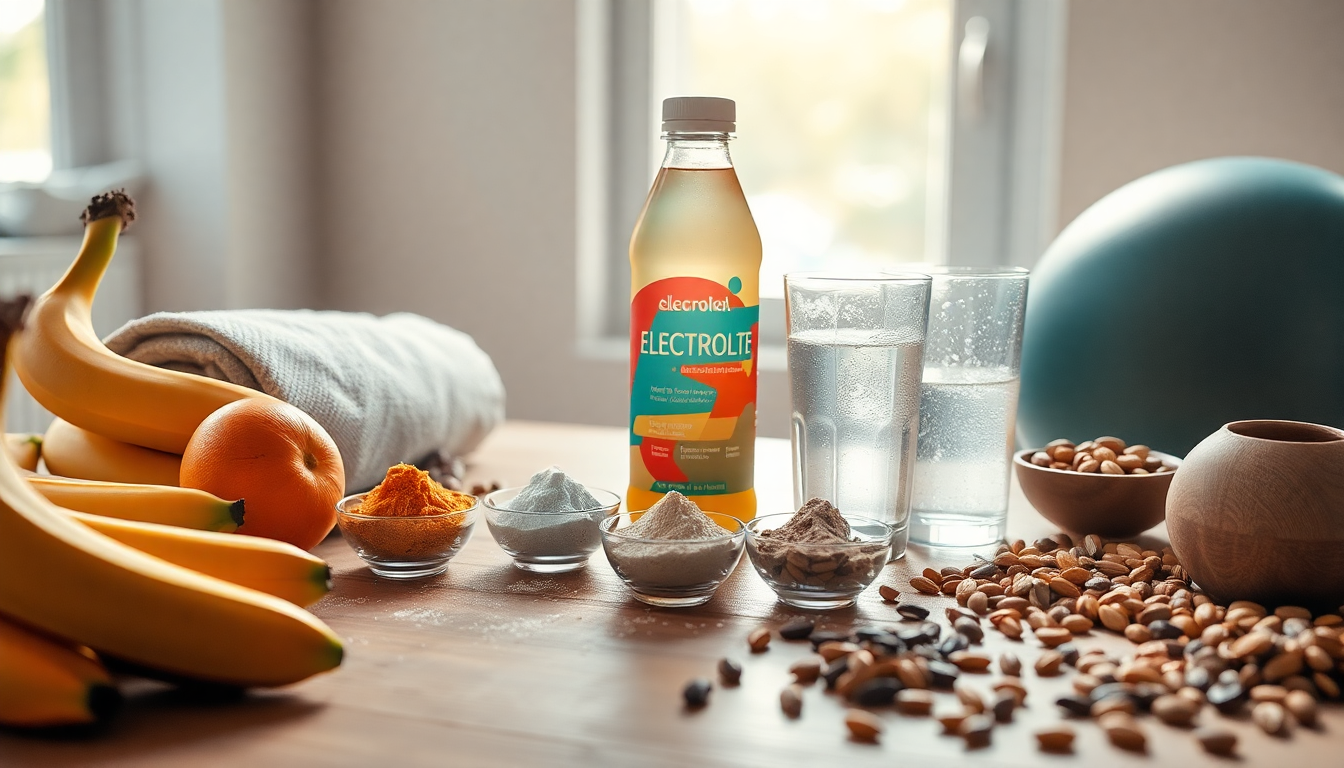Table of Contents
Have you ever wondered why electrolytes are such a hot topic, especially after a tough workout or a wild night out? These essential minerals play a vital role in keeping your body functioning at its best. They help regulate fluid balance, support muscle contractions, and facilitate nerve function. Common electrolytes include sodium, potassium, calcium, and magnesium, and understanding how to replenish these minerals is crucial for your health. With the recent boom in electrolyte drinks and supplements, it’s easier than ever to find options that suit your needs. In this article, we’ll dive into the benefits of electrolytes, review some popular products, and share practical tips on how to incorporate them into your diet.
Why Do Electrolytes Matter for Hydration and Health?
So, what exactly are electrolytes? Simply put, they are charged minerals that dissolve in your bodily fluids, allowing your body to conduct electricity. This electrical activity is essential for many physiological functions, especially when it comes to maintaining fluid balance. When you sweat, exercise, or become dehydrated, your body loses these vital minerals. If your electrolyte levels drop too low, you might experience fatigue, muscle cramps, or even confusion. In severe cases, an imbalance can lead to serious health problems.
Your need for electrolytes can vary from person to person, depending on factors like your activity level, climate, and overall health. For example, athletes who engage in intense workouts or long endurance activities often require extra sodium and potassium to keep their performance on point. On the other hand, someone who leads a more sedentary lifestyle might need less. Understanding what your body needs is key to effective hydration and performance.
But electrolytes aren’t just important during workouts. They can also aid in recovery after illness, help with hangovers, or combat dehydration caused by environmental factors. Making it a habit to consume electrolyte-rich foods and drinks can help maintain balanced mineral levels and support your overall health.
Popular Electrolyte Supplements and Their Effectiveness
One product worth mentioning is Dr. Berg’s Sports Hydration Electrolytes. This supplement features high-quality ingredients like Pink Himalayan Sea Salt and trace minerals, all sweetened with stevia. Many users report feeling more hydrated and energized after using this product, which contains 500 mg of sodium and 1000 mg of potassium—perfect for those who are regularly active.
If you’re looking for something that also delivers a boost of B vitamins, check out Liquid I.V. Hydration Multiplier. Its fast-acting formula is popular among users, although it does contain about 10 grams of sugar per serving, which might not fit everyone’s dietary preferences.
For a low-sugar option, Nuun Sport Hydration offers convenient tablets that dissolve in water. This product is great for those who want to avoid sugary drinks while still getting their electrolytes.
Serious athletes might consider LMNT, which packs a punch with 1000 mg of sodium per serving—ideal for replenishing lost minerals after intense workouts. Just keep in mind that it may not be the best choice for those who need to monitor their sodium intake.
Don’t forget about coconut water, which has become a popular natural source of electrolytes. It provides potassium and other minerals without any added sugars or artificial ingredients, making it a fantastic alternative to traditional sports drinks.
Expert Tips for Choosing the Right Electrolyte Supplement
When it comes to selecting an electrolyte supplement, there are a few key factors to keep in mind. First, take a look at the ingredient list; products with fewer additives and artificial ingredients are generally a better choice. Aim for options that strike a balance between sodium, potassium, and magnesium, tailored to your hydration needs.
Also, think about your activity level. If you’re engaging in prolonged or intense exercise, you might benefit from supplements that are higher in sodium and carbohydrates. If your workouts are shorter, lower-sugar options could be more suitable. And if you notice that you sweat a lot or have a salty taste to your perspiration, this might indicate a need for more sodium.
Consulting a healthcare professional or a sports dietitian can provide you with personalized advice, especially if you have any underlying health conditions that could be affected by electrolyte consumption. They can help you find the right balance of electrolytes based on your lifestyle and workout routine.
Finally, keep in mind that while supplements can support hydration, they should complement a balanced diet rich in whole foods. Foods like bananas, spinach, and avocados are excellent natural sources of potassium, while nuts and seeds offer magnesium. Combining dietary sources with supplements can help ensure you meet your electrolyte needs effectively.


